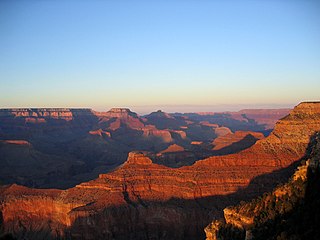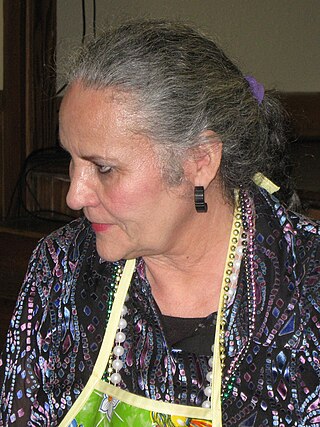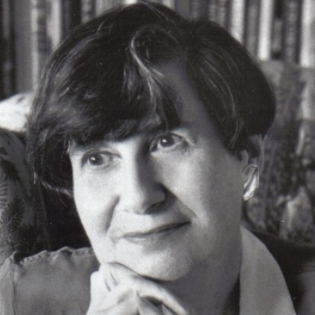Related Research Articles

The Western United States, also called the American West, the Western States, the Far West, and the West, is the region comprising the westernmost U.S. states. As American settlement in the U.S. expanded westward, the meaning of the term the West changed. Before around 1800, the crest of the Appalachian Mountains was seen as the western frontier. The frontier moved westward and eventually the lands west of the Mississippi River were considered the West.

Annie Dodge Wauneka was an influential member of the Navajo Nation as member of the Navajo Nation Council. As a member and three term head of the council's Health and Welfare Committee, she worked to improve the health and education of the Navajo. Wauneka is widely known for her countless efforts to improve health on the Navajo Nation, focusing mostly on the eradication of tuberculosis within her nation. She also authored a dictionary, in which translated English medical terms into the Navajo language. She was awarded the Presidential Medal of Freedom in 1963 by Lyndon B. Johnson as well as the Indian Council Fire Achievement Award and the Navajo Medal of Honor. She also received an honorary doctorate in Humanities from the University of New Mexico. In 2000, Wauneka was inducted into the National Women's Hall of Fame.

Chicana feminism is a sociopolitical movement, theory, and praxis that scrutinizes the historical, cultural, spiritual, educational, and economic intersections impacting Chicanas and the Chicana/o community in the United States. Chicana feminism empowers women to challenge institutionalized social norms and regards anyone a feminist who fights for the end of women's oppression in the community.

Matilda Coxe Stevenson, who also wrote under the name Tilly E. Stevenson, was the first woman ever employed as an anthropologist in the U.S. She was also the first female anthropologist to study the Native Americans of New Mexico. She pioneered the use of photography in ethnology.

Lucy Martin Lewis was a Native American potter from Acoma Pueblo, New Mexico. She is known for her black-on-white decorative ceramics made using traditional techniques.

Denise Elia Chávez is a Chicana author, playwright, and stage director. She has also taught classes at New Mexico State University. She is based in New Mexico.

Francine Irving Neff was the 35th Treasurer of the United States, serving from June 21, 1974, to January 19, 1977. She was appointed by Richard Nixon but continued serving as Treasurer through Gerald Ford's term in office after Nixon resigned in August 1974.
For the American educational theorist and educator, see Janet Hale.

Interstate 25 (I-25) in the US state of New Mexico follows the north–south corridor through Albuquerque and Santa Fe. It replaced U.S. Route 85 (US 85), which is no longer signed, but still exists in route logs sharing most of the I-25 alignment. I-25 starts in New Mexico at an interchange with I-10 in Las Cruces and extends roughly 460 miles (740 km) before reaching Colorado. I-25 passes through principally rural land through central New Mexico and passes through or near the cities of Las Cruces, Truth or Consequences, Socorro, Belen, Albuquerque, Santa Fe, Las Vegas, and Raton.
Maria Espinosa is an American novelist, poet, and translator.
This is a Mexican American bibliography. This list consists of books, and journal articles, about Mexican Americans, Chicanos, and their history and culture. The list includes works of literature whose subject matter is significantly about Mexican Americans and the Chicano/a experience. This list does not include works by Mexican American writers which do not address the topic, such as science texts by Mexican American writers.
Carmelita "Carm" Little Turtle is an Apache/Tarahumara photographer born in Santa Maria, California, on June 4, 1952. Her hand-painted, sepia-toned photographs explore gender roles, women's rights and the relationships between women and men. Little Turtle's constructed photographic tableaux cast her husband, her relatives, and herself as characters in a variety of Southwestern landscapes that serve as backdrops to the dynamics of interpersonal relationships.

Tonita Peña born as Quah Ah but also used the name Tonita Vigil Peña and María Antonia Tonita Peña. Peña was a renowned Pueblo artist, specializing in pen and ink on paper embellished with watercolor. She was a well-known and influential Native American artist and art teacher of the early 1920s and 1930s.

Fabiola Cabeza de Baca Gilbert was an American educator, nutritionist, activist and writer. Cabeza de Baca is also known as the inventor of the U-shaped fried taco shell. She was also the first known published author of a cookbook describing New Mexican cuisine. Cabeza de Baca was fluent in Spanish, English, Tewa and Tiwa.
Margaret Herrera Chávez (1912–1992) was an American painter and printmaker.
Alice Williams Cling is a Native American ceramist and potter known for creating beautiful and innovative pottery that has a distinctive rich reds, purples, browns and blacks that have a polished and shiny exteriors, revolutionizing the functional to works of art. Critics have argued that she is the most important Navajo potter of the last 25 years.

Susan Groag Bell was a Czech-American pioneer in Women's Studies. At a time when there were no academic courses nor textbooks, offered in women's history, Bell compiled images of women's participation in society from artworks and began presenting lectures to present roles women had held in society. In 1971, a year after the first women's studies course was offered in the United States, Bell taught her own class on the subject and prepared a reading guide for the course which would become one of the first textbooks to treat women's history from an academic perspective. She taught and researched for more than four decades as an independent scholar at the Clayman Institute for Gender Research. Posthumously, a conference named in her honor was held at Stanford University and a plaque recognizing her contributions to women's history was dedicated by the history department of Stanford.
Lois Scharf is an American historian and writer specialized in women's history, family organization, and feminism. She served as the executive director of the National History Day program from 1978 to 1992. Scharf has taught at John Carroll University and Case Western Reserve University.

Ada McPherson Morley was an American author, suffragist and rancher. Early in her time in New Mexico, she and her husband edited a newspaper and took on the Santa Fe Ring both in print and in business matters. Morley became involved with the New Mexico chapter of the Women's Christian Temperance Union (WCTU) and later served as president. She was also involved in women's suffrage in New Mexico and helped recruit women into the Congressional Union (CU) later in her life. Morley owned a ranch in the Datil Mountains where she raised cattle and was able to host meetings.

María Luisa Legarra Urquides was an American educator and proponent of bilingual education. She spent her life in the US state of Arizona, but influenced national educational policies. Urquides served in local and federal roles, and received numerous awards and recognitions for her educational leadership and community work. She has been referred to as the "Mother of Bilingual Education" in the United States. She was inducted into the Arizona Women's Hall of Fame in 2002.
References
- ↑ "NMSU Library: News". lib.nmsu.edu. Archived from the original on 2008-05-16.
- ↑ "Gender & Sexuality Studies".